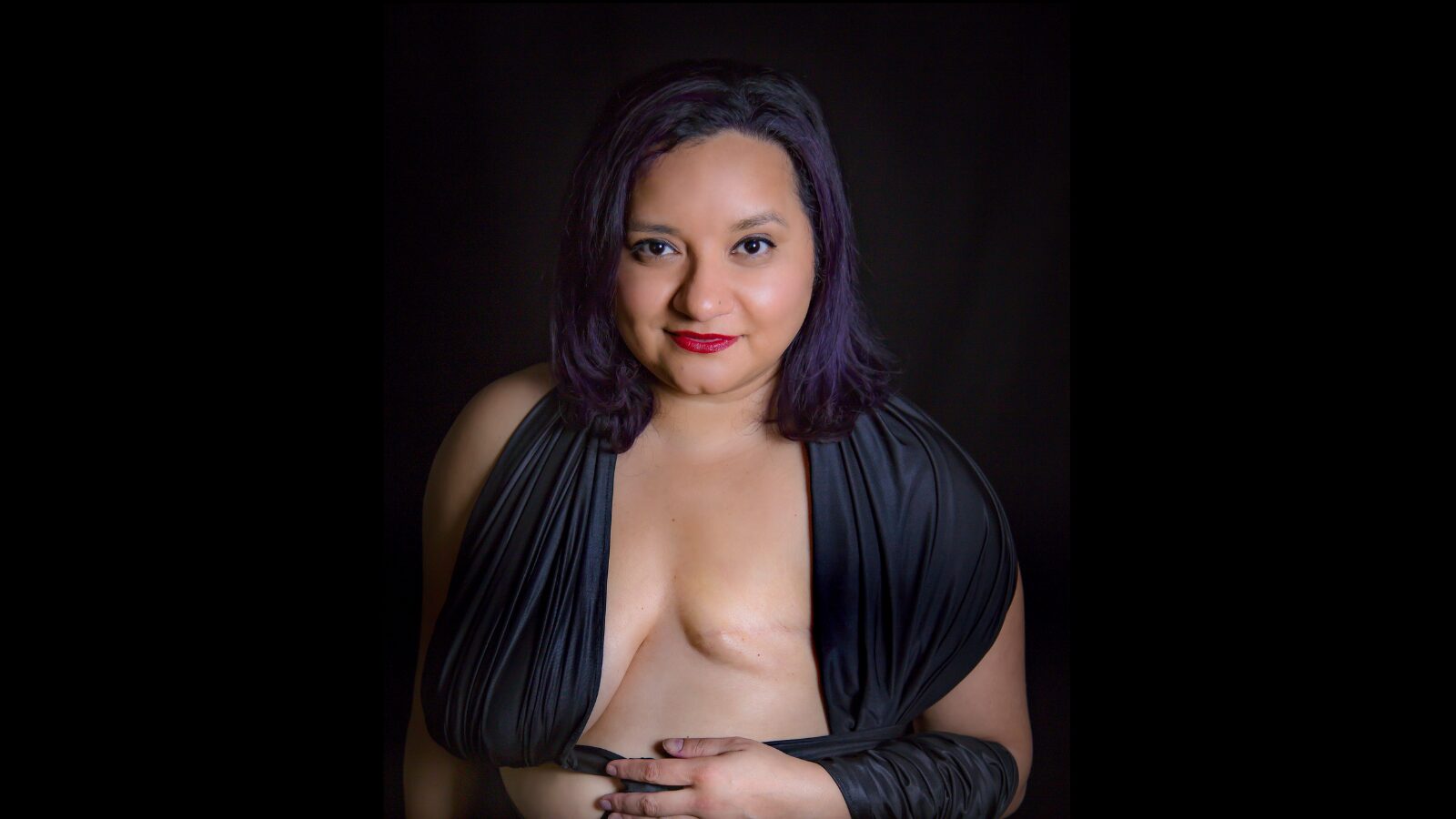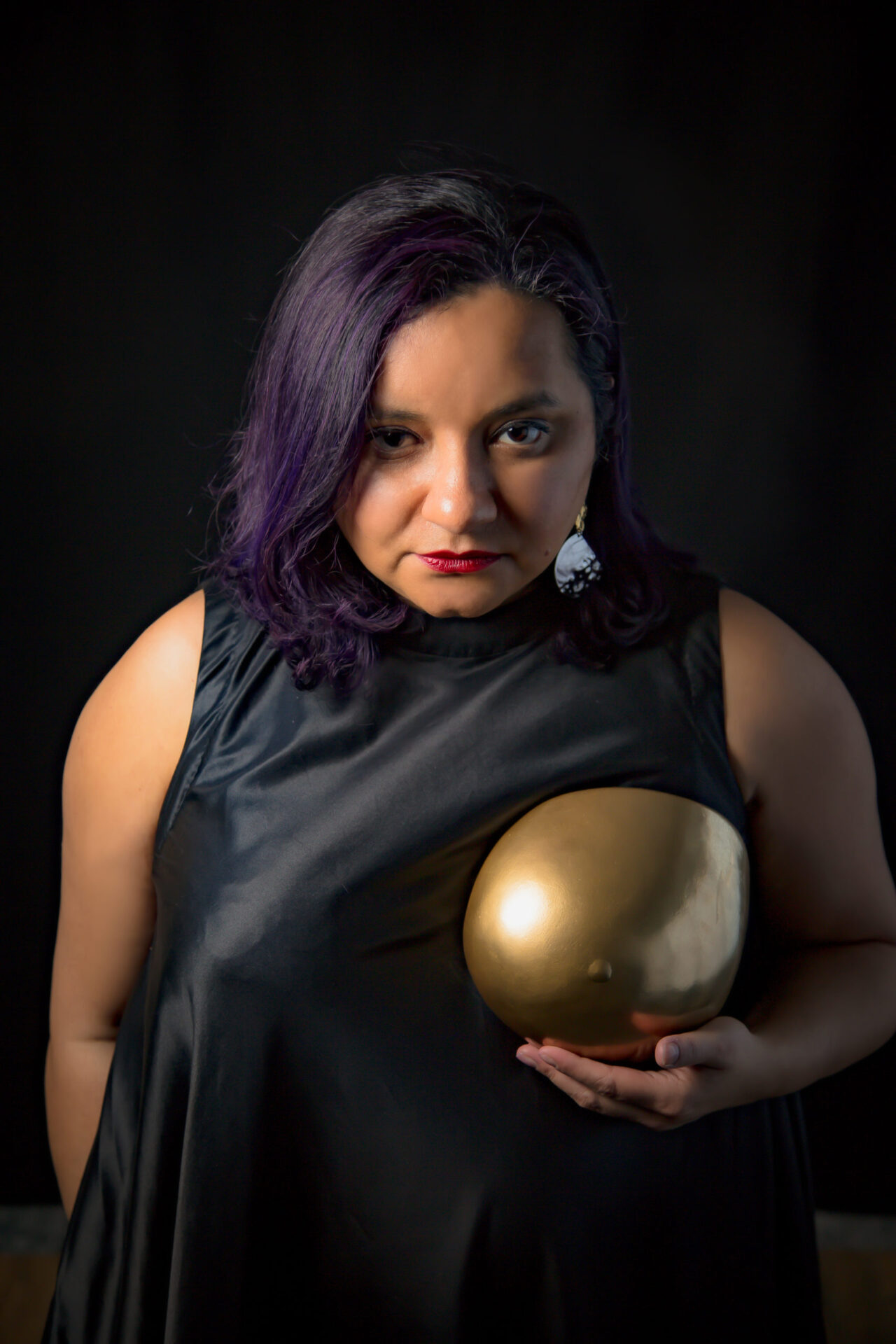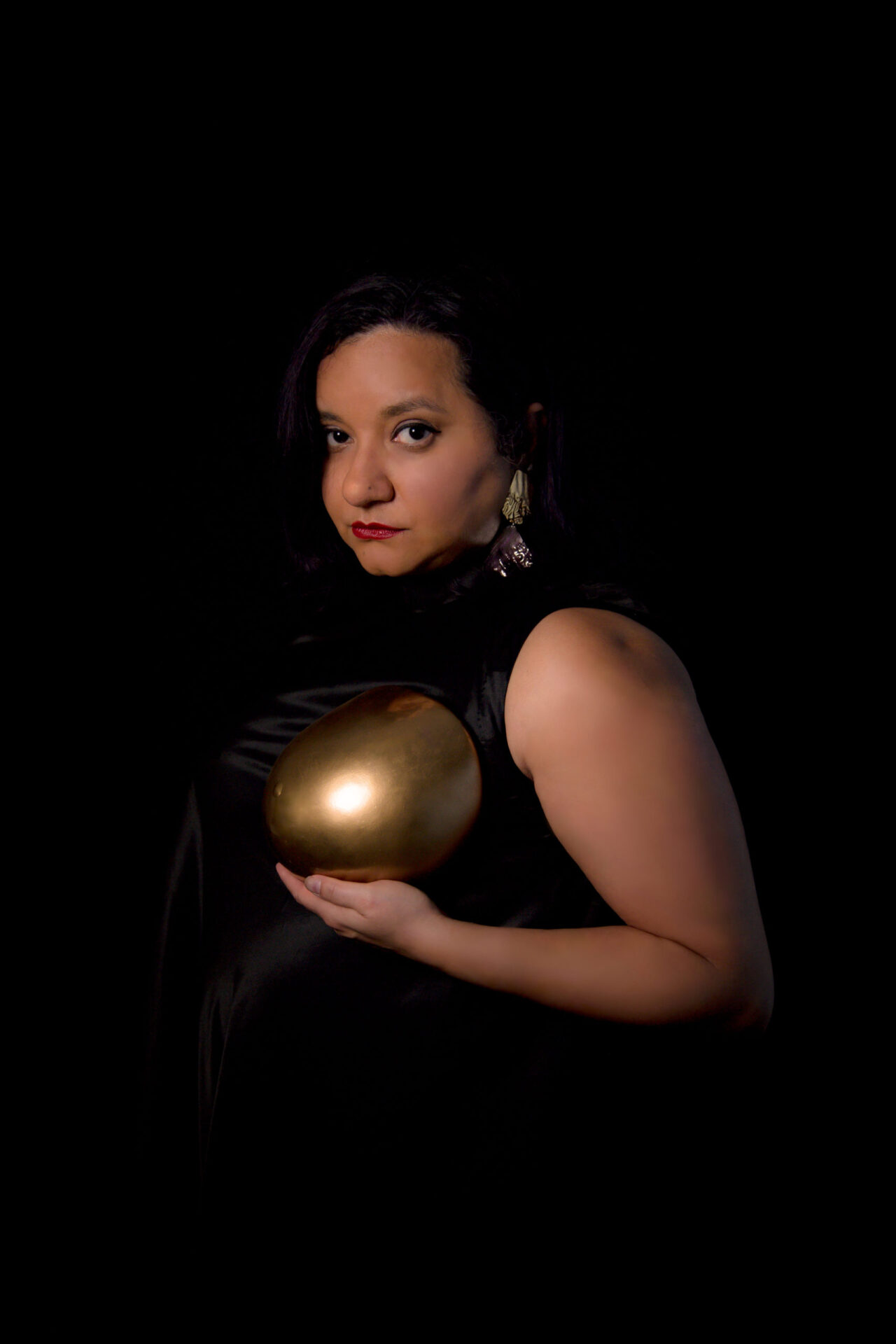Uncovering a Breast Cancer Diagnosis as a Pakistani Muslim Immigrant Woman
11 MINS to read
11 MINS to read

I wanted to start writing this post back in August 2021. I was so angry with the process and procedures of getting an appointment to discuss a possible reconstructive surgery. The appointment brought up so much venom in me that when I got back to my apartment that I was sharing with my mother for a vacation week in August, I couldn’t stop yelling, she later told me. She saw the anger in me, and for the first time in my life, my mother finally witnessed the stress and pain I went through when I had appointments like this. My mother, a well-educated, first generation, religious, Pakistani immigrant woman, who is so used to suppressing trauma and hardship, had no clue how to help me except to pray. I have generations of women in my ancestry that navigate trauma and pain like this, but I wanted to navigate this differently.
I was diagnosed with DCIS in my left breast in August, the month of my 40th birthday. A woman going through so much around this age, hormones were everywhere, I couldn’t decide if I wanted another child, and just like that, the radiologist had found something suspicious in the mammogram that my doctor ordered because I kept complaining about a burning pain in my chest. All of my plans were erased, my body and mind went into survival mode. I started with healthcare plans, wills, passwords, notes, finances, all to prepare for the possibility of an end.
 Breast cancer is not my “journey,” it is not my “something” that has a final destination. It is a tumultuous, caught-in-the-rapids ride that has so many free-fall moments and periods of your head under water that I had to learn how to dive into this chaos. Scared, fearful, anxious, I immersed myself into learning techniques that I could use to manage this chaos. Breast cancer was not a battle or war that I survived, it was and still is a hazy, continuous dream-like state of exhaustion, brain fog, pain, memory loss, lack of sleep. I had felt this level of fatigue and weakness when my son was 1-4 years old, but this event, for me, was a lot more physical, emotional, and spiritual pain. My breast cancer—the appointments, the treatments, the therapies—are events in time, consumed with and in chaos of life. I am still trying to get accustomed to and be present with this chaos as I wait for reconstructive surgery. I opted to wait for this surgery after my left breast mastectomy so I could give my body, myself, my mind, my son, my husband, and my family time to absorb all that had just occurred.
Breast cancer is not my “journey,” it is not my “something” that has a final destination. It is a tumultuous, caught-in-the-rapids ride that has so many free-fall moments and periods of your head under water that I had to learn how to dive into this chaos. Scared, fearful, anxious, I immersed myself into learning techniques that I could use to manage this chaos. Breast cancer was not a battle or war that I survived, it was and still is a hazy, continuous dream-like state of exhaustion, brain fog, pain, memory loss, lack of sleep. I had felt this level of fatigue and weakness when my son was 1-4 years old, but this event, for me, was a lot more physical, emotional, and spiritual pain. My breast cancer—the appointments, the treatments, the therapies—are events in time, consumed with and in chaos of life. I am still trying to get accustomed to and be present with this chaos as I wait for reconstructive surgery. I opted to wait for this surgery after my left breast mastectomy so I could give my body, myself, my mind, my son, my husband, and my family time to absorb all that had just occurred.
I had such a hard time navigating the healthcare system to find information and images of women who were my colour, skin type, culture, ethnicity, and had a Pakistani Muslim immigrant background. I needed something to identify with. I registered on websites to find peers that were navigating a similar experience. I took classes through the survivorship programs offered through hospital, to see if I could resonate and identify with anything, something to help me anchor down. I felt like I was floating through a system that had no representation of me, no pictures of reconstruction on women of my color or skin tone, no one who spoke any version of my language, or had my ethnicity. Because of this, I had the most difficult time preparing for the pre- and post-mastectomy. The hospital did not have a prosthesis my breast size, my skin tone, or my shape. I couldn’t find a group of individuals of Pakistani Muslim background to give me their experiences. Women in my culture and community usually do not speak about these things, especially when the word ‘breast’ is involved. I was told by family, extremely educated academics and friends to pray, not to discuss this diagnosis with so much sensitivity, just get the appointments done and put this be behind me, not to think about the loss of this body part, not to lament over it. But I couldn’t do that! I looked for faces, experiences, any story of women or men, so that I could have reference for this experience I was going through, but I just could not find any that I identified with. So, I decided I would identify with myself, I would use myself as this reference that I longed for. I decided that this event in my life would serve as a reference to a period of change for me, and maybe it will help someone else who needs this. I took pictures of myself pre-mastectomy, and post-mastectomy. I worked with a sculpturist with a medical art background to develop a custom-fit prosthesis so I could have something that represented me, that looked like me, and how I was presented to the world before my left breast mastectomy.
Pakistani women need to speak up about this cancer that affects them so widely. We need to show our faces in social media, pamphlets, online platforms so that we can represent ourselves in this healthcare system that has such a hard time supporting us. Let me help you get started! You do not have to just say “yes” to all the information that is given to you in the first appointment after your diagnosis. You do not have to have immediate reconstruction, especially if you do not understand the process, procedure, and have no reference to pictures of what women like you could look like. You do not have to sign anything, unless you have had time to read it, go through it and understand the consequences. You do not and should not have to wear a prosthesis that does not fit your body or skin tone. Actually, you do not have to wear a prosthesis at all! This is going to be your life-changing experience, so choose to be an active, present, aware advocate for your own health. I had a hard time figuring out who to talk to, obviously my family did not know what to say, they were busy with their own lives. I did not have the finances to have regular therapy sessions, so I asked for referrals to counseling within the cancer hospital. Yes, use the survivorship programs available to support you, register into support groups so more inclusivity, and representation develops. And if language is a problem, because there is going to be so much information and tons of papers given to you, take a translator, or ask hospital accessibility services how to book translation and communication assistance, and ask for the documents to be given to you in your language—this is a part of informed consent!
I was not able to find where to get a comfortable post-mastectomy bra, as the hospital facility did not have my size. So, I looked for comfortable solutions, I was only able to use Etsy to finally find something I was willing to wear that were comfortable. Resources that the oncology team provided did not have platforms like Rethink Breast Cancer in them in 2019, so I researched online breast cancer groups, like breastcancer.org, Canadian Breast Cancer Network, Canadian Cancer Society and finally came across Gilda’s Club in Toronto. But, yet again, I felt isolated, although there was help, I still had this outsider feeling and experience as a Brown Muslim woman. These experiences confirmed for me that all my life events were something I needed to learn from deeply, especially breast cancer. I needed to feel it, be present with it, aware of it, and then move on WITH it, not from it. I needed to put myself and represent myself in these groups. Yes, register to support groups and clubs so your experience becomes a part of a more inclusive and representative breast cancer community.
Breast cancer is a debilitating identity-stripper. Not only does the ground beneath you disappear, as it does with a cancer diagnosis alone, but the external removal of a body part that has been a part of one’s identity for a majority of their life, once gone or altered, can make one feel they are in this alien and foreign form that they have to learn to re-identify with. Breast cancer is an ‘event’ in my life, it is not my life, therefore it cannot be the journey my existence takes, but rather an event my existence will use to improve the quality of my experiences in this life. Yes, use this life-changing experience to improve the quality you have with your family, friends, and most importantly YOURSELF!
 Breast and breast cancer are taboo topics in my culture, so much so that talking about it makes you feel as if some curse has been put on you and everyone has to stay away. Saying the word “breast” in itself puts you in a category of people that speak openly about things that are not meant to be discussed. Exposing your breast or body is not in accordance to the traditions of Islamic faith, but in a non-Muslim society, where breast examinations can be performed by male doctors, this drawback in the healthcare system makes it further difficult for women to have breast exams, assessments, and discussions. My radiologist, surgical oncologist, and reconstructive surgical resident were all men, and even though I have lived most of my life outside of Pakistan, my cultural, religious, and ethnic upbringing made me uncomfortable during these appointments with no support to help me feel safer and more at ease. So, take a friend, someone you are close to, your partner to all appointments, even if they sit outside the room, it makes a difference. Ask for a female health care provider and speak up if you don’t feel comfortable.
Breast and breast cancer are taboo topics in my culture, so much so that talking about it makes you feel as if some curse has been put on you and everyone has to stay away. Saying the word “breast” in itself puts you in a category of people that speak openly about things that are not meant to be discussed. Exposing your breast or body is not in accordance to the traditions of Islamic faith, but in a non-Muslim society, where breast examinations can be performed by male doctors, this drawback in the healthcare system makes it further difficult for women to have breast exams, assessments, and discussions. My radiologist, surgical oncologist, and reconstructive surgical resident were all men, and even though I have lived most of my life outside of Pakistan, my cultural, religious, and ethnic upbringing made me uncomfortable during these appointments with no support to help me feel safer and more at ease. So, take a friend, someone you are close to, your partner to all appointments, even if they sit outside the room, it makes a difference. Ask for a female health care provider and speak up if you don’t feel comfortable.
From a community experience I felt that I was viewed as a sufferer, death stricken, weak, non-religious, unhealthy, mentally ill, possessed, and even an outcast. There is an incredible concept of the evil eye in my culture, and any sickness of the body that has to do with female sexuality is considered an ailment caused by possible evil and wrongdoing. Either this or you were or are not god-abiding enough, and this form of your worldly suffering is the will of Allah, some professed. This made me feel even more alienated and alone. My religion and culture itself were barriers that made my breast cancer experience difficult to navigate, be present with, and freely discuss. In order to find some spiritual foundation, I asked questions of Islamic scholars, spiritual leaders, and meditation teachers, eventually creating a practice for myself that hovered around these levels of religion and spirituality. This helped tremendously with managing my pain, nausea, brain fog, fatigue, and overall experience.
If anyone resonates at some level with my experiences, please know you are not alone. Especially for my Pakistani Muslim sisters, I strongly advise you to talk about what you are going through with someone, speak up for yourself when in appointments, record your meetings, make notes, get referrals to whatever you think will help you, get a version of experiences that will help you advocate for yourself and ask as many questions as possible. I urge you to pray, meditate, go on retreats, and seek representation in this healthcare system so that your experience is validated and supported and you can thrive in your breast cancer experience. Most importantly give yourself time to absorb your diagnosis, your treatment options, the decisions you make and just being with your body. I hope you find some comfort in knowing that although this is an unfortunate circumstance, during this difficult pandemic, you are not isolated, you are not alone, you are not the only Pakistani, Muslim, Brown immigrant woman navigating a breast cancer diagnosis, or any diagnosis in general. We are here, look for us, talk to us, SEE US! — Haramain
Special shout-out and thank you to Farin Jiwani for the photographs, Biko for the jewelry and Irene Healy for the prosthetic.
Uncovered: A Breast Recognition Project is a resource and ongoing project that focuses on the breast cancer experiences of Black, Indigenous and People of Colour. Through powerful imagery, genuine storytelling and more, it shines a light on the physical and emotional scars of breast cancer, cultural barriers and health equity.